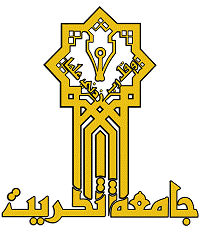Applications of Artificial Intelligence (IA) in Medicine
This special session is organised and supported by academic scholars from Tikrit University in Iraq.
Tikrit University, Iraq
Session Chair:
- Prof. Ali A. Sheehab, Tikrit University, Tikrit, Iraq.
- Dr. Maksood A. Mahmoud, Dean of The Health and Medical Technical College / Aldour, Northern Technical University.
Session Co-Chair:
- Prof. Anas Y. Al-Hayawi, Tikrit University, Tikrit, Iraq.
- Dr. Rasha Al Moussawi, Lebanese University, School of Pharmacy, Iraq.
Scientific Committee:
- Dr. Shadman Tariq Sadiq, Tikrit University. Tikrit, Iraq.
- Dr. Khadem Kh. Hashim, Al-Qasim Green University. Babylon, Iraq.
Synopsis:
The widespread adoption of Artificial Intelligence (AI) is increasingly prominent in various aspects of medicine. Therefore, this special session will concentrate on the real-world applications of AI within medicine, encompassing areas such as analysing medical data, patient records, medical images and genetic information. As the use of AI in these contexts gains momentum, this issue will primarily explore the challenges and opportunities of implementing these technologies.
Topics:
This special session welcomes papers on the following topics:
- Disease Diagnosis and Predictive Analytics
- Medical Imaging
- Drug Discovery and Development
- Personalised Medicine
- Healthcare Management and Predictive Analytics
- Virtual Health Assistants
- Natural Language Processing (NLP)
- Robot-Assisted Surgery
- Drug Adverse Event Monitoring
- Mental Health and Well-being
- Genomic Analysis
- Remote Patient Monitoring
- Medical Chatbots
By addressing these diverse topics, the conference aims to foster collaborations, exchange ideas, and pave the way for novel breakthroughs at the intersection of medicine. It will provide a platform for researchers and practitioners to share their knowledge and insights, ultimately driving the innovative revolution in this exciting field.
Paper Submission
Prospective authors are invited to submit full-length papers (not exceeding 6 pages) conform to the IEEE format . All papers will be handled and processed electronically via the EDAS online submission system.


